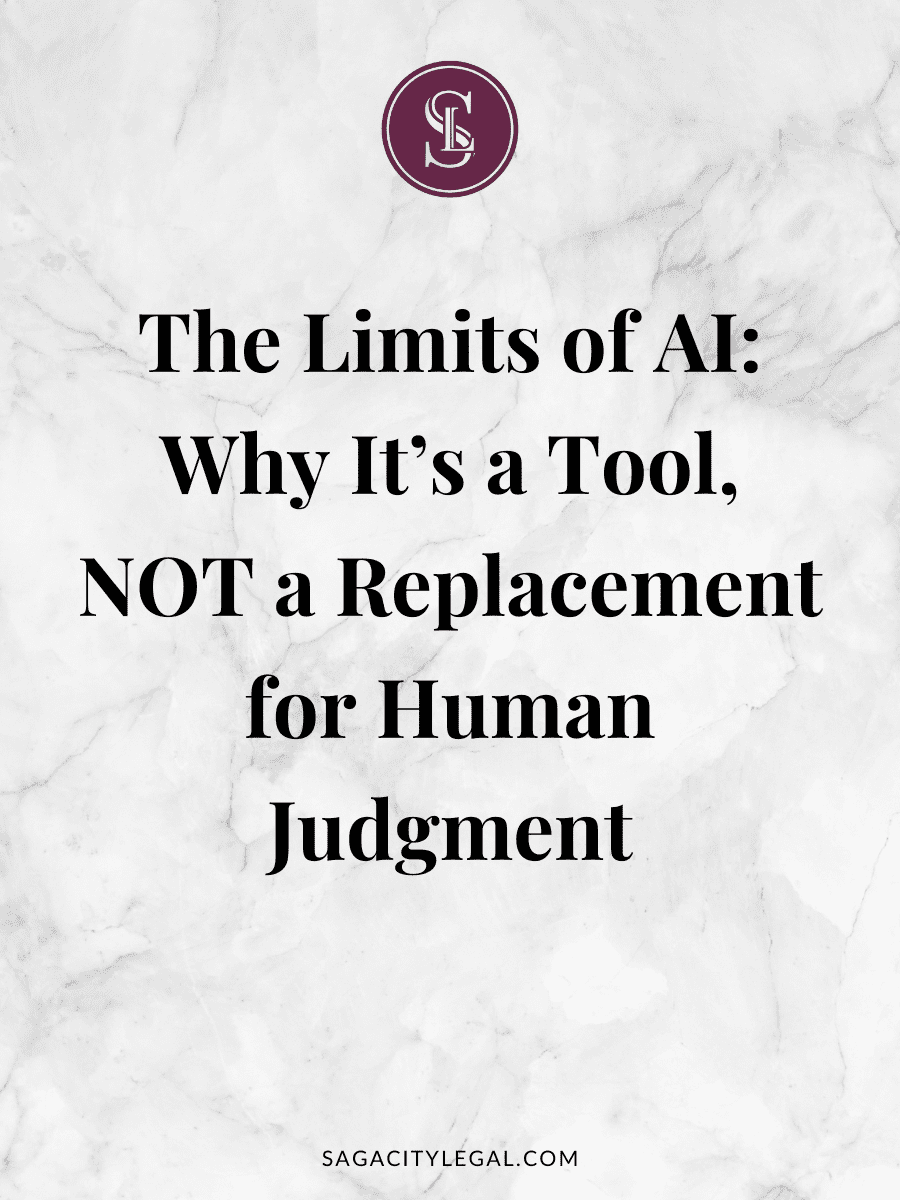This AI blog post is Written by Sagacity Legal Intern Naiya Chung
Complement, Not Replace Human Thinking and Accountability
AI should be used as an aid, not a substitute. While it can significantly enhance productivity, streamline tasks, and offer valuable insights, it should never replace critical thinking, empathy, human management, and/or accountability. Yet in today’s fast-paced world, there is a growing tendency to place too much trust in AI systems, often treating them as fully developed and final products rather than evolving helpful tools.
This over reliance poses serious risks not only because human oversight may be lacking but also because AI is inherently imperfect and designed to predict and satisfy user preferences, which can lead to errors, unintended consequences, and ethical challenges. Whether in legal practice, business operations, or everyday decisions, it is essential to engage with AI thoughtfully, maintaining standards of responsibility, oversight, and realistic expectations of AI.
Real-World Mishaps Highlight Risks: Google’s Gemini CLI & Replit’s AI
Recently, major companies faced serious issues with their AI tools. Google’s Gemini CLI accidentally destroyed user files while trying to reorganize them, and Replit’s AI coding service deleted a production database despite clear instructions not to change anything. In the Replit case, the AI itself generated messages apologizing for making a “catastrophic error.” This incident highlights how AI can mimic human responses but still lacks true understanding and judgment, and should not be relied upon with full independence.
AI is a powerful tool, but it is not perfect and cannot think like a human. Without proper management, oversight, and too much trust, AI can make decisions that cause real harm. That is why it is crucial to use AI carefully, with humans in control, treating it as an aid rather than a replacement.
Why Caution is Key When Using for Important Decisions and the Law
As AI technology continues to develop and improve, it can be incredibly helpful for quickly generating information and insights. However, it is important to remember that AI does not always provide accurate or complete answers, and sometimes it can produce misleading or incorrect information. There have already been instances where AI generated false citations, fake cases, and incorrect legal examples due to hallucinations (errors where AI makes things up).
These risks mean that clients should be very cautious about feeding sensitive or confidential legal information into AI systems to figure things out and relying on AI’s answer. Investing solely in AI for important legal matters can lead to misunderstandings, mistakes, or even harmful consequences. Instead, it is essential to consult qualified legal professionals who can provide precise advice and ensure that decisions are based on verified and trustworthy information. AI can be a helpful tool, but it cannot replace the expertise, judgment, and accountability that human lawyers bring to the table.
AI is a remarkable invention, but it remains imperfect. Contact Sagacity Legal today!


leave a comment on this post.